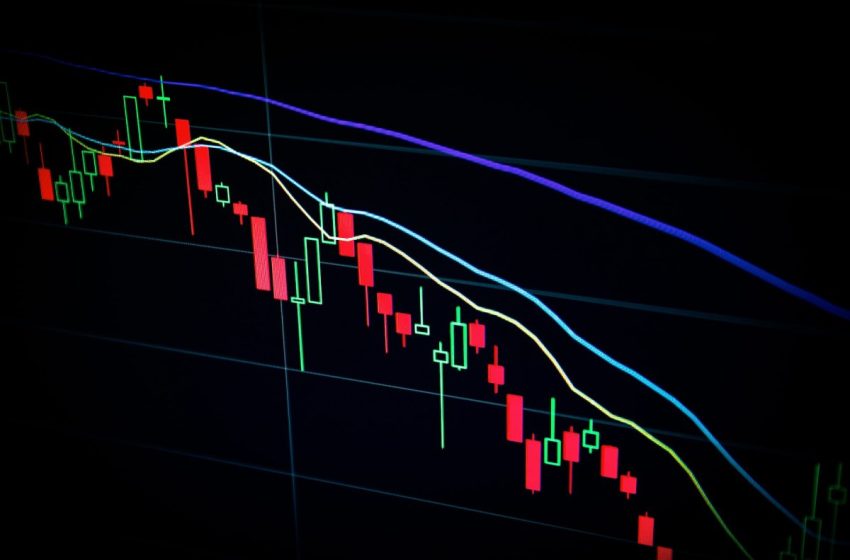The importance of maintaining academic ethics and upholding ethical standards

How Modern Day Traders Can Use Technology For Assistance
Modern Day Traders: Gone are the days when trading was predominantly a manual affair, where traders would meticulously handle calls, meticulously arrange paperwork and expertly seal deals, shouldering the full weight of responsibility. The landscape of the contemporary trading industry presents an altered visage. Propelled by the force of innovations such as big data and machine learning, the tides of trading are set to undergo even more profound transformations. As you cast your gaze toward the horizon, it becomes evident that the impending future of the financial realm will witness the inexorable integration of artificial intelligence and machine learning, with these technologies assuming increasingly pivotal roles within the workings of financial institutions.
Table of Contents
Using Cash Indices To Track Performances
Cash indices might be unknown territory for those with little knowledge of trading. But it will be a crucial instrument for the industry in the upcoming years. Cash indices are a contract for differences (CFD) tool used to track the performances of the biggest companies in the world. More specifically, cash indices track the price movements of indexes like the Nasdaq Index and the S&P 500 Index in relation to each other.
There are several reasons why cash index trading is gaining a foothold in the industry. Firstly, it’s because of the exposure to a more significant number of stocks without having to invest a large amount of capital. Secondly, investors can diversify their portfolios when using digital platforms to trade cash indices.
Prioritising Cloud Technology
Developers have often dealt with restraints like time and resources when trying to develop a solid trading platform for traders. At the same time, the cloud computing market is growing at a fast pace. Therefore, cloud technology is beginning to play a more prominent role. Cloud technology, known from many platforms where you can save important data, can positively impact trading. By using cloud technology, traders can save time and resources.
By adopting cloud technology in trading, traders can execute quick trades. Furthermore, they can take advantage of more trading opportunities in real time. In a world with new updates almost constantly, cloud-based trading platforms can help remove the burden for traders who don’t want to depend on specific operating systems. With cloud technology, traders can access their data on any device.
Making Documents Effective With Blockchain

In the realm of trading, documents serve as the linchpin of the industry’s operations. Nevertheless, managing the multitude of physical documents that accumulate with numerous trade executions can be a time-consuming and labor-intensive task. Embracing the shift to electronic documentation has emerged as a pivotal driver in enhancing operational efficiency and unlocking substantial cost savings. Consequently, digital innovations, particularly blockchain technology, have gained widespread traction within the trading sphere.
Blockchain technology stands poised to revolutionize traditional paperwork procedures, providing traders with a streamlined approach to document management. This not only promises to streamline workflow processes but also introduces a heightened level of transparency, thereby fortifying the defenses against fraudulent activities within trade workflows.
Indeed, blockchain technology is poised to become a pivotal component of the evolving digital trading infrastructure in the forthcoming years.
Algorithmic Trading
Some might shiver at the thought of artificial intelligence (AI) taking over more areas of society. However, the idea of using AI in trading is no longer a concept; it is an ongoing transition. By embracing artificial intelligence in finance and investing, traders can reduce their workload.
Algorithms in trading can give traders a complete overview of data, which can be used to make quicker decisions and feel more control over their trading. Not only can AI analyze large amounts of data, but it can also make predictions, making it excellent guidance for traders.
Utilizing Trading Platforms
Trading platforms have stood as enduring fixtures within the industry, but their evolution has been nothing short of remarkable. Their journey through time has seen them not only grow in competency but also surge in popularity. This transformation mirrors the global expansion of trading accessibility, rendering today’s trading platforms more inclusive than ever before.
In the contemporary landscape, trading platforms are expected to provide an invaluable resource: real-time market data. This data is the lifeblood that empowers traders of all backgrounds to make decisions steeped in wisdom. These platforms are not merely repositories of data; they are dynamic tools equipped with a sophisticated arsenal tailored to assist users in comprehending intricate market trends.
With trading platforms serving as conduits for sensitive financial data, they bear a weighty responsibility. They must rigorously adhere to industry standards and regulatory requirements to safeguard the security and integrity of the entire trading ecosystem, ensuring that traders can ply their craft with confidence in the digital age.
Everything Is Automated
If one were to characterize the development in trading over the last ten years, one word would appear: automation. Technology has made it easier for traders to keep their end up, from digitalizing physical documents to systems analyzing market trends. This includes algorithmic trading, where traders can let the computer execute and monitor trades.
These technologies have made it easier for traders not to trade with their emotions since the systems let traders stick to the plan. On the other hand, traders need to remember to monitor the system to avoid letting technology failures like computer crashes ruin their work.


